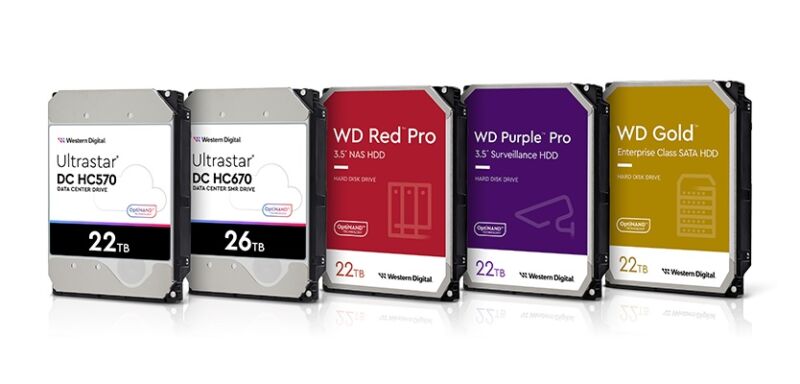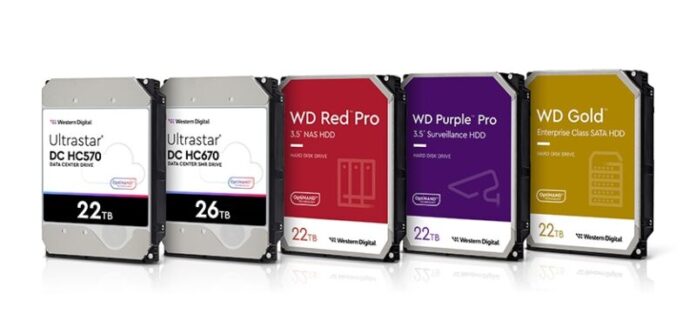
Enlarge / Western Digital is gearing up to sample its first 28TB HDDs to customers, around a year after announcing its first 26TB drives. (credit: Western Digital)
After a couple of decades of talk, Seagate announced earlier this year that it was shipping samples of huge 32TB hard drives using heat-assisted magnetic recording (HAMR). The new kind of drive technology uses lasers to heat disk platters during writing, making it possible to store more data on a disk without increasing its physical size.
But there's still a bit more capacity to be wrung out of older and more-proven recording technologies like perpendicular (or conventional) magnetic recording (PMR/CMR, often used interchangeably) and shingled magnetic recording (SMR); Western Digital announced this week that it's preparing to sample huge 28TB hard drives based on those technologies, a little over a year after announcing its first 26TB model.
According to Tom's Hardware, WD uses energy-assisted perpendicular magnetic recording (ePMR) to fit up to 24TB of data on a single drive. SMR allows magnetic tracks to overlap slightly (like the shingles on a roof), allowing slightly more data to fit onto the same physical platters at the expense of write performance—this boosts the capacity of these drives to 28TB.
Read 3 remaining paragraphs | Comments
Ars Technica - All contentContinue reading/original-link]




